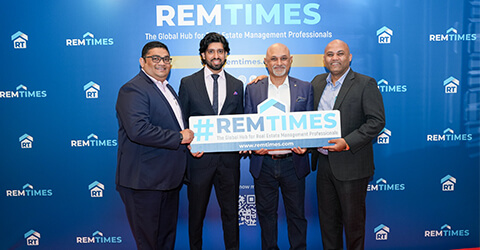- Cochin Shipyard Seeks Global Partners to Expand International Ship Repair Footprint
- OpenText Names Former IBM Americas President Ayman Antoun as CEO
- Fintech Company Network International Appoints Ashish Jain as Group CFO
- Sony and TCL Agree Strategic Partnership to Form Global Home Entertainment Joint Venture
- Vitrealab Raises $11 Million to Solve Display Challenges Across Wearables and Smart Interfaces
Thought Leadership
Have you ever sat at your desk with your computer screen on and found your mind wandering in every direction but the task at hand? Turns out, most employees find themselves in a similar predicament. According to a survey conducted by Udemy Research, nearly 3 out of 4 workers feel distracted at work and more than half of them aren’t performing as well as they should be. This is because when you have a hundred things on your mind each day and personal issues to worry about as well, focusing on your daily to-do list at work can be a struggle.
Sometimes your inability to concentrate on work can be chalked down to exhaustion due to lack of sleep, food, or a caffeine high. But if you’re well-rested and still find your attention drifting off into the unknown, here are a few tips to get you out of the rut and improve your concentration and focus.
1. Limit Distractions
Whether you’re working at the office or from your home, there are numerous distractions that tend to pop up throughout the day. From calls and texts to employee interactions and gossip sessions, these interruptions can easily derail your train of thought and shift your focus from your work to other situations. Research has shown distractions can cause employees to commit twice as many errors as usual. This tends to occur because when people are constantly interrupted, they work faster to compensate for the time lost. Plugging in your earphones, listening to a soothing playlist, and switching your phone to silent is a great way to tune off the outside world and finish your tasks on hand.
2. Leave Unnecessary Meetings
With numerous companies still operating through a work-from-home setting and others shifting to a hybrid workplace, meetings on Zoom and Google Meet have started to fill up every employee’s daily schedule. Research has shown that companies spend nearly 31 hours a month on meetings that have no tangible value, in fact, employees believe that half the meetings they attend are a waste of time. So, if you’re not actively contributing to the meeting or involved in the main topic of discussion, opt out of the meeting and ask for the minutes to be emailed to you instead.
3. Declutter Your Workspace
Your surroundings, more often than not, tend to influence your mindset. If you’re a person who tends to fidget, a messy desk provides you with ample distractions that can steer your focus away from your work. In fact, research conducted by Current Psychology has linked clutter to procrastination. Studies have also shown that messy office space reduces a person’s ability to perform effectively; primarily because when you have too many objects in your line of sight, it limits your processing capacity and reduces productivity.
4. Schedule Your Tasks and Time
Have you ever felt like you have too much to do and too little time? This is where time management comes into the picture. Work blocks or methods like The Pomodoro Technique can help you focus better and improve productivity. Research has shown that on average, employees take 25 minutes to fully refocus on their work after an interruption. So instead of trying to do a host of different jobs altogether, you can improve your focus by clubbing similar tasks together and finishing it off in one shot.
As American Baseball Coach Tony La Russa once said, “There are always distractions, if you allow them.” The inability to focus is something that every individual has experienced at a certain point in time, but the only way you can get past this is if you make a conscious choice to disconnect from the world around you and accomplish your goals.
At some point in time every employee, manager, or CEO has felt overwhelmed due to work. Whether it is because of workplace conflicts, a growing to-do list, expansion, and big projects, there are lots of...
As the COVID-19 pandemic has shaken the business landscape, organizations are still trying hard to cope with the changes. Walking around the office area is no longer an adequate measure to keep an eye on...
As a result of the burgeoning fear of the upcoming recession and the ongoing evolution of the corporate landscape, CFOs and finance leaders are being tasked with taking on a more strategic role. They now...
While LinkedIn was predominantly used as a job-seeker and employer portal, in recent years, it has emerged as one of the winning social media platforms to grow your personal brand. However, many...
The growing voices for social and economic equality are no longer limited to individuals alone, as organizations have also started partaking in it. From corporates to non-profits, there’s an...
One hears the term leadership daily in the corporate world, yet it has remained a puzzle to decipher for most. This term can bring to mind several instances, such as -an executive scaling their...
When you have a hectic schedule and thousands of things on your agenda each day, it’s easy to put self-care on the back burner. The large stack of never-ending tasks, reading and replying to numerous...
Psychologist and author Daniel Coleman conducted a study that reviewed and analyzed more than 3,000 middle-level managers to find out specific leadership behaviours and their effect on profitability. The...
REM Times – The Global Hub for the Real Estate Management Professionals is now officially open for the industry. The official launch occurred at Taj Dubai on June 9th in front of industry leaders...
















